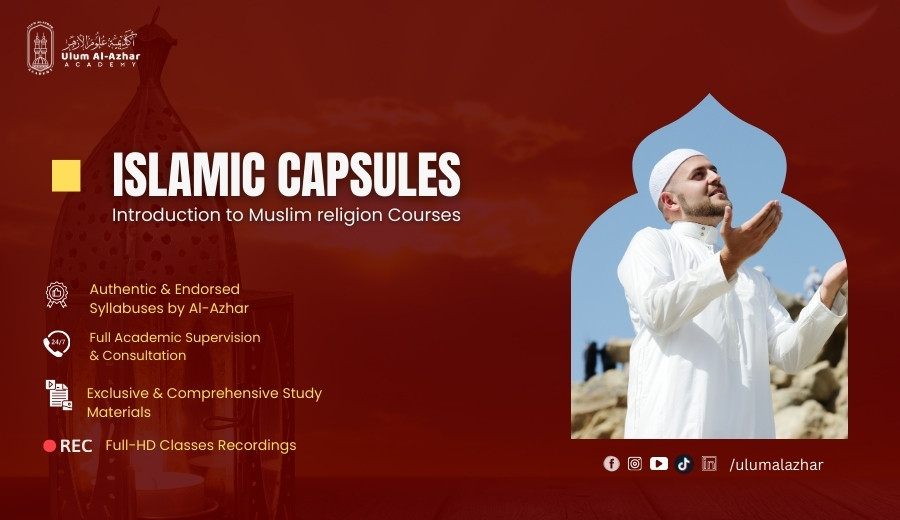
What Is the Dhul Qadah Month? Significance and Virtues in Islam
Dhul Qadah month is one of the holiest months in the Islamic calendar. It is the 11th month of the Hijri year and holds a special importance for Muslims due to its historical, spiritual, and religious importance.
The word Dhul Qadah (Or Dhu al-Qa’dah) literally means “the month of truce or rest”, as this was the time period in which fighting was not allowed and peace was established.
Table of Contents
What Is the Dhul Qadah Month in the Islamic Calendar?

Allah Almighty said in Surah Tawbah
“Indeed, the number of months with Allah is twelve [lunar] months in the register of Allah [from] the day He created the heavens and the earth; of these, four are sacred. That is the correct religion, so do not wrong yourselves during them…” (Surah At-Tawbah 9:36)
This verse indicates that there are four sacred months, which include the dhul qadah month. Muslims are encouraged to increase in piety during these sacred months, refrain from sinning, and do good deeds and acts of worship.
Explore the beauty of Islam with the Islamic Jurisprudence program offered by Scholars from Al-Azhar, Egypt!
Why Is Dhul Qadah Considered a Sacred Month?
Dhul Qadah is placed in the Islamic calendar as a sacred month. It is the eleventh month of the Hijri calendar and is meant for deeper reflection, more devotion, and peace.
So, why exactly is dhul qadah month a sacred month? Some of the significance of this month is hinted at with verses in the Qur’an and hadith.
Dhul Qadah month in Quran
The significance of Dhul Qadah is referred to in the Qur’an, in which Allah refers to the sacred months. The significance of the Dhul Qadah month is rooted in the Qur’an, where Allah mentions the concept of sacred months:
“Indeed, the number of months with Allah is twelve [lunar] months in the register of Allah [from] the day He created the heavens and the earth; of these, four are sacred. That is the correct religion, so do not wrong yourselves during them…” (Surah At-Tawbah 9:36)
This verse emphasizes that Allah has made four of the months sacred, and Dhul Qadah month is one of them.
Allah advises Muslims to act righteously and avoid sins during these sacred months. The significance of this month is relevant, as the sacred months were times of peace, reflection, and spiritual growth.
Hadiths About the Sacredness of Dhul Qadah Month
The Prophet Muhammad ﷺ also mentioned that the month of Dhul Qadah is sacred. A famous hadith in Sahih al-Bukhari states:
“The year is twelve months, of which four are sacred: three consecutive months, Dhul Qadah, Dhul Hijjah, and Muharram, and Rajab…” (Sahih al-Bukhari, Hadith 3197)
This hadith shows that Dhul Qadah month is one of the four sacred months of the year. It is important to note that sinful actions are considered even worse, and righteous deeds are rewarded more in the sacred months compared to the months that are not sacred.
The sacred status of this month led Muslims to improve themselves and to refrain from acts that could destroy their relationship with Allah.
Historical Events That Happened in Dhul Qadah
The Dhul Qadah month has additional historical significance. In the age of ignorance, literally pre-Islamic Arabia, fighting was halted in this month because it was perceived to be a time of respite, reflection, and resolution of disputes.
This continued with the Islamic belief that fighting was not permitted in this month, and it became a time of greater spirituality. In addition, during Dhul Qadah, the Prophet Muhammad ﷺ and his companions signed the Treaty of Hudaybiyyah, a notable treaty of peace with the Quraysh.
This treaty allowed the Muslims to go to Mecca to make the pilgrimage the following year, adding to the broader social context that made the month spiritually important.
Acts of Worship Recommended in the Dhul Qadah Month
Dhul Qidah month is one of the months recognized as sacred in Islam, and it is the blessed time allotted to worship Allah based on sincerity and the satisfaction of Allah.
The beauty of this month is that it emphasizes peace and reflection, which provide an opportunity to connect with Allah to gain immense rewards. Here are some of the best acts during this blessed month:
1. Articulation of Dhikr
In an elevated way, it is not just one of the favored acts of worship in Dhul Qidah month; it might be the single most important acknowledged act of worship in the month of Dhul-Qidah.
The Qur’an demonstrates for us as believers the teaching to earn great rewards with Dhikr.
“O you who have believed, remember your lord with many remembrances”. [Surah Al-Ahzab 33:41]
Ultimately, as a result of articulation of these phrases of worship, such as SubhanAllah (All praise be to Allah), Alhamdulillah (All praise be to Allah), and Allahu Akbar (God is the Greatest), professes the absoluteness that Allah is Pure, Great, and encounters the believer’s heart.
2. Making Dua (Supplication)
The Dhul Qadah month is an opportune time for Dua, as Allah is indeed always listening to His servants’ calls, especially in the sacred months. Muslims are encouraged to invoke Allah for forgiveness, hidayah (guidance), and barakah (blessings).
The Prophet Muhammad ﷺ is noted to invoke Allah abundantly. Therefore, Muslims can utilize the time to ask Allah for their own personal needs and to ask for others during the month of Dhul Qadah.
“And your Lord says, ‘Call upon Me; I will respond to you.'” (Surah Ghafir 40:60)
3. Voluntary Fasting
While there are no required fasts in the Dhul Qadah month, fasting in this sacred month is highly encouraged and is a recommended Sunnah act.
The Prophet Muhammad ﷺ, recommended fasting on the white days (13, 14, and 15 of the lunar month), and therefore, this can also be implemented as well in Dhul Qadah. Fasting is a way of purifying the soul and it also increases devotion and piety.
“The most beloved of fasting to Allah is the fast of Dawood. He used to fast every other day.” (Sahih al-Bukhari)
Voluntary fasting during the month of Dhul Qadah helps to get closer to Allah and increase rewards.
Discover the virtues of fasting in Shawwal month and more!
4. Giving Charity (Sadaqah)
Another important deed of worship in the Dhul Qadah month can be charitable giving. The reward for charitable giving is multiplied during the sacred months. Giving to those in need carries a special significance and has great rewards.
Muslims can give to the poor, donate to a good cause, or support the building or maintenance of masjids, schools, or any effort that is beneficial to the community.
“The example of those who spend their wealth in the way of Allah is like a seed of grain which grows seven ears. In each ear is a hundred grains.” (Surah Al-Baqarah 2:261)
Through Allah’s commands, Sadaqah (charity) purifies wealth and brings tranquility into the heart. Muslims should consider practicing this deed generously through Dhul Qadah, and it can invite many blessings.
Discover the difference between Zakat and Sadaqah!
5. Seeking Forgiveness (Istighfar)
Seeking forgiveness (Istighfar) is one of the best deeds to do in the Dhul Qadah month. The Prophet Muhammad, may peace and blessings be upon him, encouraged his followers to seek forgiveness for their sins on a regular basis.
Like the two previous acts of worship, seeking forgiveness has multiplied effects in our sacred months and is an avenue of mercy from Allah.
“And ask forgiveness of Allah. Indeed, Allah is ever Forgiving and Merciful.” (Surah An-Nisa 4:106)
Muslims may benefit greatly from the frequent recitation of Astaghfirullaha Rabbi min kulli dhambin wa atubu ilayh (“I ask forgiveness from Allah, my Lord, from every sin and I turn to Him”) as a means of seeking forgiveness from Allah and invoking Allah’s mercy.
With the help of Ulum Al-Azhar Academy, you can learn Quran recitation with tajweed. You can easily join the private tutoring at Private Tadarus Al-Quran & Recitation with Ijazah, where you learn and practice Quran recitation with a professional and expert Quran tutor from Al-Azhar Al-Sharif.

Conclusion
In the Islamic calendar, the Dhul Qadah month is not only a month but an opportunity for Muslims to reignite their faith, perform acts of worship, and prepare themselves for the following sacred month of Dhul Hijjah and the Hajj pilgrimage.
Honoring the sanctity of the month allows Muslims to deepen their relationship with Allah and reflect on their spiritual journey.
Book a free Consultation session and start learning!
FAQs
What are the 4 haram months?
The four haram months (sacred months) in Islam are Dhul Qadah, Dhul Hijjah, Muharram, and Rajab.
Is dhul qadhah 29 or 30 days?
Dhul Qadah can be either 29 or 30 days, depending on the sighting of the moon.

